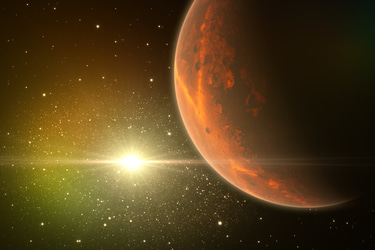ESA's CHEOPS Mission: Harnessing AI to Study Exoplanetary


Introduction to ESA's CHEOPS Mission
The European Space Agency's (ESA) Characterising Exoplanet Satellite (CHEOPS) mission represents a significant leap in the study of exoplanets. Launched in December 2019, CHEOPS is designed to gain insights into the atmospheric conditions and compositions of nearby exoplanets. The mission employs advanced technologies, notably artificial intelligence (AI), to analyze data from stars surrounding these celestial bodies, thereby enhancing our understanding of their environments.
The Role of AI in Exoplanet Research
AI has emerged as a powerful tool in various scientific domains, including space exploration. In the context of CHEOPS, artificial intelligence aids in the processing and analysis of vast datasets being collected. By utilizing complex algorithms, AI assists researchers in identifying patterns and anomalies in light curves, which, in turn, can indicate the presence of exoplanets. This sophisticated data analysis contributes to the overarching goal of determining how these planets interact with their host stars.
Understanding Stars of Nearby Exoplanets
Studying the stars around nearby exoplanets is crucial for comprehending the potential habitability of these distant worlds. CHEOPS focuses on bright stars, as the light they emit is easier to analyze, providing clearer insights into any transiting planets. As CHEOPS collects more data, AI algorithms will help in answering fundamental questions about stellar behaviors and their effects on planets within their orbits.
Moreover, the combination of CHEOPS' observations and AI-enhanced analysis could lead to breakthroughs in fields such as astrophysics and planetary science. By interpreting complex data sets, scientists hope to learn how stars influence the atmospheres of the exoplanets they host. This valuable information will ultimately contribute to the scientific community’s understanding of the very nature of planetary systems.
Conclusion
ESA's CHEOPS mission is pioneering the use of artificial intelligence in the exploration of exoplanetary science. By focusing on the stars surrounding these distant worlds, CHEOPS, in conjunction with AI, promises to unveil the mysteries of exoplanets and their atmospheres. The knowledge gained from this collaboration can provide invaluable insights into the characteristics and conditions that govern planets beyond our solar system—potentially paving the way for future discoveries regarding life-supporting environments elsewhere in the universe.
